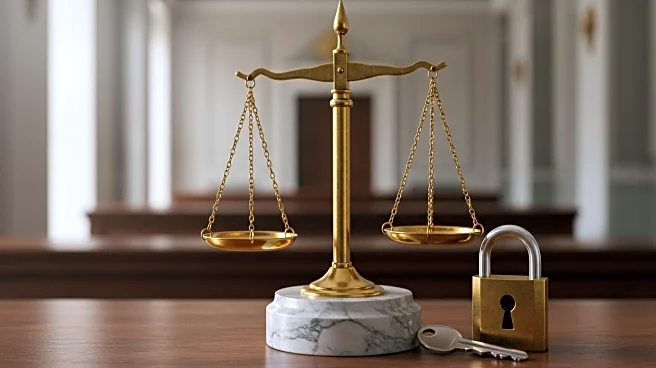What's Happening?
The Supreme Court has allowed Mississippi to enforce a law requiring social media companies to verify the age of users and obtain parental consent for minors. This decision is part of the state's effort to protect children from online predators. Justice Brett Kavanaugh noted the law might be unconstitutional but stated that internet companies failed to demonstrate harm from the temporary order. Social media companies, including Facebook, X, and Instagram, argued the law infringes on First Amendment rights. Mississippi officials cited cases of online crimes, including a tragic incident involving a 16-year-old boy, to justify the law. The law imposes penalties for violations and was temporarily blocked by a federal district court before being allowed by the 5th US Circuit Court of Appeals.
Why It's Important?
The Supreme Court's decision highlights ongoing debates over online safety and privacy, particularly for minors. The ruling could influence similar laws in other states, as concerns about protecting young people online grow. While Mississippi argues the law is necessary for child protection, critics, including LGBTQ advocacy groups, claim it restricts access to safe online spaces. The decision underscores the tension between state efforts to regulate online content and the protection of constitutional rights, potentially affecting how social media platforms operate nationwide.
What's Next?
The Supreme Court's decision is temporary, pending further review of the law's constitutionality by lower courts. The outcome could set a precedent for similar laws across the U.S., impacting social media companies and their users. Stakeholders, including advocacy groups and tech companies, are likely to continue challenging the law, emphasizing the balance between safety and free speech. The case may prompt legislative discussions on how best to protect minors online while respecting constitutional rights.
Beyond the Headlines
The ruling raises ethical questions about the balance between protecting children and preserving free speech online. It also highlights the challenges of enforcing age verification without infringing on privacy. The decision could lead to increased scrutiny of social media platforms' responsibilities in safeguarding minors, potentially influencing future regulations and industry standards.









